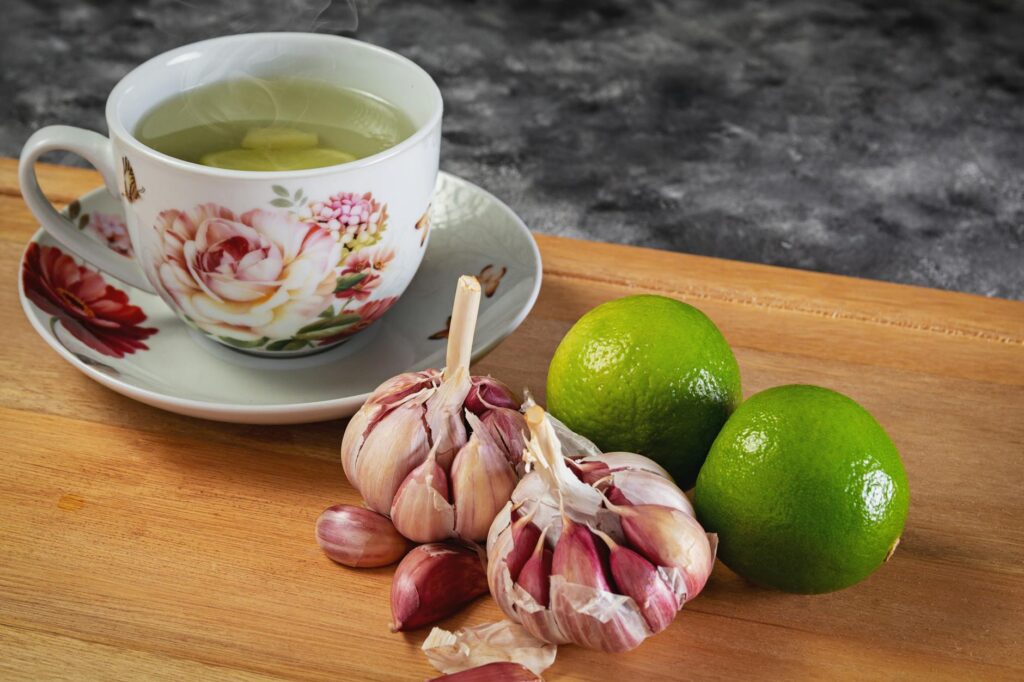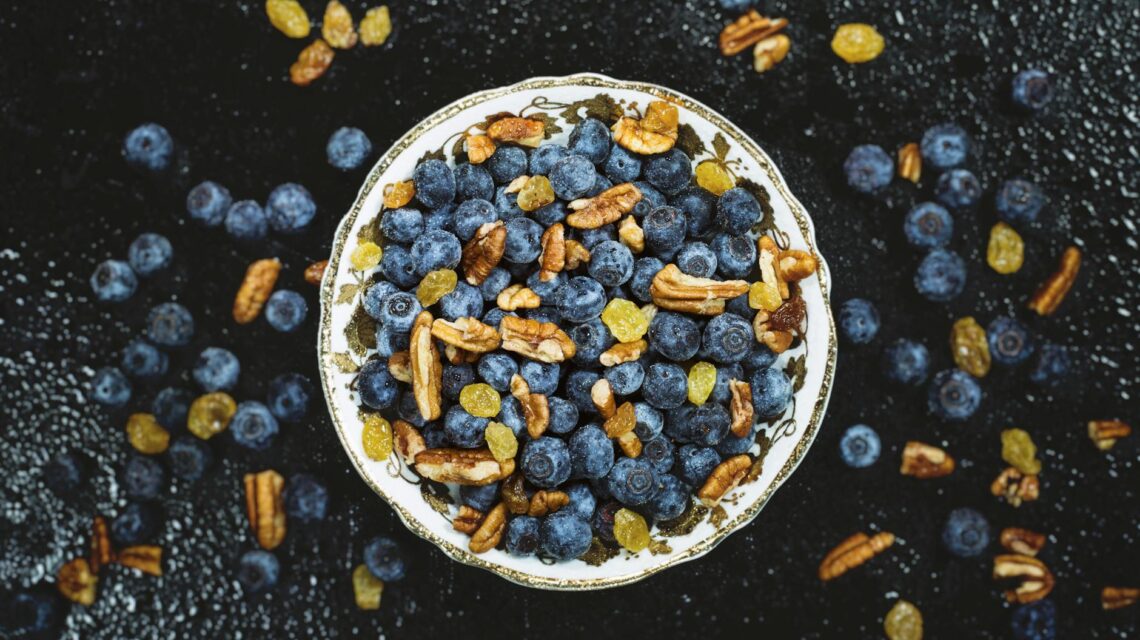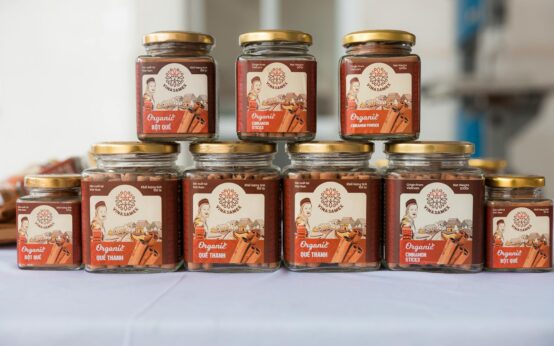Your Body’s Best Defense: Power Up With These Immune-Boosting Foods
Let’s be real. Nobody likes getting sick. That nagging cough, the stuffy nose, the sheer exhaustion—it’s the worst. We all want to feel strong, energized, and ready to take on the day. But in a world full of germs, stress, and less-than-ideal sleep schedules, how do you keep your defenses up? While there’s no magic pill, what you put on your plate plays a massive role. The right foods can give your body the tools it needs to boost immunity and fight back effectively. Forget a quick fix; this is about building a resilient, robust internal army, one delicious bite at a time.
Think of your immune system as a complex, highly trained team of bodyguards. To do their job well, they need the right fuel. That’s where superfoods come in. These aren’t exotic, hard-to-find ingredients. Many are probably in your kitchen right now! We’re going to walk through 13 of the most powerful, science-backed superfoods that can help fortify your defenses, keeping you healthier and happier all year round. Ready to eat your way to a stronger you?
Key Takeaways
- Variety is Key: A balanced diet with a wide range of vitamins and minerals is more effective than focusing on just one or two nutrients.
- Focus on Whole Foods: The most powerful immune boosters are natural, unprocessed foods like fruits, vegetables, and lean proteins.
- Consistency Matters: Regularly including these foods in your diet is crucial for long-term immune support, not just when you feel a cold coming on.
- Hydration is Non-Negotiable: Water is essential for every bodily function, including immune response. Don’t forget to drink up!

The Ultimate Immune-Boosting Shopping List: 13 Superfoods
So, where do you start? Let’s stock your pantry and fridge with these 13 immune-supporting powerhouses.
1. Citrus Fruits (Oranges, Grapefruits, Lemons)
This one’s a classic for a reason. When you feel a sniffle coming on, what’s the first thing people tell you to grab? Vitamin C! And citrus fruits are practically bursting with it. But why is Vitamin C so important? Well, it’s thought to increase the production of white blood cells, which are the frontline soldiers in your fight against infections. It’s a powerful antioxidant, helping to protect your cells from damage caused by free radicals. Your body doesn’t produce or store Vitamin C, which means you need to get it daily for continued health. A single medium orange can provide nearly all the Vitamin C you need for a day. So squeeze a lemon into your water, have a grapefruit for breakfast, or just peel an orange for a snack. It’s simple, it’s delicious, and it’s so, so good for you.
2. Red Bell Peppers
Think citrus has the monopoly on Vitamin C? Think again. Ounce for ounce, red bell peppers contain almost three times as much Vitamin C as a Florida orange. Seriously. They are an incredible source of this immune-boosting vitamin. Beyond that, they’re also a rich source of beta carotene. Your body converts beta carotene into Vitamin A, which is another critical player in immune function. Vitamin A helps keep your skin and mucous membranes healthy—these are your body’s first lines of defense against invading pathogens. So, slice them up for a stir-fry, roast them to bring out their sweetness, or just munch on them raw with some hummus. Your immune system will thank you.
3. Broccoli
Your mom was right all along—you really should eat your broccoli. This green giant is supercharged with vitamins and minerals. It’s packed with vitamins A, C, and E, as well as fiber and many other antioxidants. The key to keeping its power intact is to cook it as little as possible. Lightly steaming it is probably your best bet to preserve the nutrients. Some studies even suggest that eating it raw is the most beneficial. It contains a potent compound called sulforaphane, a powerful antioxidant that supports immune health. It’s an incredibly versatile vegetable that can be added to almost any savory dish, making it an easy addition to your regular meal rotation.
4. Garlic
Garlic is more than just a flavor bomb for your pasta sauce; it’s a medicinal powerhouse that has been used for centuries to fight infections. Its immune-boosting properties seem to come from a heavy concentration of sulfur-containing compounds, such as allicin. Allicin is what gives garlic its characteristic smell and is a potent antimicrobial agent. Some studies have shown that regular garlic intake may help reduce the severity of cold and flu symptoms. It also has properties that can help lower blood pressure and slow down the hardening of the arteries. To get the most benefit, it’s best to use fresh garlic. Chopping or crushing it and letting it sit for a few minutes before cooking can help enhance its allicin content. So, don’t be shy with it!
5. Ginger
Ginger is another ingredient many turn to after they get sick. And for good reason. It can help decrease inflammation, which can help reduce a sore throat and other inflammatory illnesses. That warm, spicy kick it has? That comes from gingerol, a relative of capsaicin (the stuff that makes chili peppers hot). Gingerol is the main bioactive compound in ginger, responsible for much of its medicinal properties. It has powerful anti-inflammatory and antioxidant effects. Ginger may also help with nausea and chronic pain. Whether you’re sipping it in a tea, grating it into a stir-fry, or adding it to a smoothie, incorporating ginger into your diet is a fantastic way to support your overall health and well-being.
6. Spinach
It’s no surprise that spinach made this list. It’s rich in Vitamin C, but that’s just the start. It’s also packed with numerous antioxidants and beta carotene, both of which may increase the infection-fighting ability of our immune systems. Similar to broccoli, spinach is healthiest when it’s cooked as little as possible so that it retains its nutrients. However, light cooking makes it easier to absorb the Vitamin A and allows other nutrients to be released from an antinutrient called oxalic acid. So, a light sauté or steam is perfect. It’s an easy green to throw into smoothies, omelets, and pasta dishes for a nearly invisible nutrient boost.

7. Yogurt (with Live & Active Cultures)
When you see the phrase “live and active cultures” on a yogurt container, that’s referring to probiotics. These are the “good” bacteria that can help keep your gut and intestinal tract free of disease-causing germs. A healthy gut is a cornerstone of a healthy immune system. Around 70% of your immune system is actually housed in your gut! Look for plain yogurts rather than the pre-flavored, sugar-laden kinds. You can sweeten plain yogurt yourself with a drizzle of honey and some healthy fruits. Also, try to get yogurts fortified with Vitamin D. Vitamin D helps regulate the immune system and is thought to boost our body’s natural defenses against diseases. Greek yogurt, in particular, is a great choice as it’s also high in protein.
8. Almonds
When it comes to preventing and fighting off colds, Vitamin E tends to take a backseat to Vitamin C. But this powerful antioxidant is key to a healthy immune system. It’s a fat-soluble vitamin, which means it requires the presence of fat to be absorbed properly. Nuts, especially almonds, are packed with the vitamin and also have healthy fats. Just a half-cup serving, which is about 46 whole, shelled almonds, provides nearly 100 percent of the recommended daily amount of Vitamin E. They make a perfect on-the-go snack, a crunchy topping for salads or yogurt, or the base for delicious almond butter.
9. Turmeric
You may know turmeric as the key ingredient in many curries. But this bright yellow, bitter spice has also been used for years as an anti-inflammatory in treating both osteoarthritis and rheumatoid arthritis. So how does it help with immunity? The magic is in its main active compound, curcumin. Curcumin is what gives turmeric its distinctive color, and it’s a very potent anti-inflammatory and antioxidant. High concentrations of curcumin have been shown to help decrease exercise-induced muscle damage and act as an immune modulator, helping to regulate immune cell function. For better absorption, always pair turmeric with a pinch of black pepper, which contains piperine, a natural substance that enhances the absorption of curcumin by 2,000%.
“Let food be thy medicine and medicine be thy food.” – A quote often attributed to Hippocrates, reminding us that the foundation of health starts on our plate.
10. Green Tea
Both green and black teas are packed with flavonoids, a type of antioxidant. But where green tea really shines is in its levels of epigallocatechin gallate, or EGCG, another powerful antioxidant. EGCG has been shown to enhance immune function. The fermentation process black tea goes through destroys a lot of the EGCG. Green tea, on the other hand, is steamed and not fermented, so the EGCG is preserved. Green tea is also a good source of the amino acid L-theanine. L-theanine may aid in the production of germ-fighting compounds in your T-cells, which are a crucial part of your immune defense. So, swapping your afternoon coffee for a cup of green tea is a simple, comforting way to support your body.
11. Shellfish (Oysters, Crab, Mussels)
This might be one you didn’t expect, but certain types of shellfish are an absolute goldmine for zinc. Zinc is a mineral that our bodies desperately need but often don’t get enough of. Why is it so important for immunity? Zinc is crucial for the normal development and function of immune cells. A zinc deficiency can severely impair immune system function. Oysters, crab, mussels, and lobster are all excellent sources. You don’t need much—just a few oysters can provide more than your daily requirement. Of course, you want to be mindful of getting too much zinc, but incorporating shellfish into your diet once or twice a week is a great strategy to ensure your levels are optimal.
12. Sunflower Seeds
Sunflower seeds are full of nutrients, including phosphorus, magnesium, and vitamins B-6 and E. That Vitamin E is particularly important for regulating and maintaining immune system function. As we discussed with almonds, Vitamin E is a powerful antioxidant that helps protect cells from damage. Just one ounce of sunflower seeds can provide a significant portion of your daily Vitamin E needs. They also contain selenium, a mineral that has a powerful effect on the immune system and has been shown to help fight off certain viruses. Sprinkle them on your salad, mix them into your oatmeal, or just eat them by the handful for a crunchy, satisfying, and immune-supportive snack.
13. Papaya
Papaya is another fruit loaded with Vitamin C. You can find over double the daily recommended amount of Vitamin C in a single medium fruit. That’s huge! But it doesn’t stop there. Papayas also have a digestive enzyme called papain, which has anti-inflammatory effects. Your body’s inflammatory response is a key part of immunity, but chronic inflammation can be harmful. Foods that help keep it in check are always a plus. Papayas also have decent amounts of potassium, magnesium, and folate, all of which are beneficial to your overall health. This tropical fruit is a delicious way to flood your system with the nutrients it needs to stay strong and healthy.
Conclusion: It’s All About Consistency
So, what’s the bottom line? Building a strong immune system isn’t about a single magic food or a last-minute panic when you feel sick. It’s about creating a consistent pattern of healthy eating. Variety is your best friend. Eating just one of these foods won’t be enough to help fight off the flu, even if you eat it constantly. Pay attention to serving sizes and recommended daily intake so that you don’t get too much of a single vitamin and too little of others.
Think of this list as your guide to building a more resilient you. By incorporating a colorful array of these superfoods into your daily and weekly meals, you’re not just eating—you’re strategically fueling your body’s natural defenses. You’re giving your internal army the best possible training and equipment. And that’s a powerful feeling. So, head to the grocery store, get creative in the kitchen, and start building a stronger, healthier you from the inside out.



 The Hidden Dangers of Processed Foods You Can’t Ignore
The Hidden Dangers of Processed Foods You Can’t Ignore  The Science of Intermittent Fasting: What Happens To You?
The Science of Intermittent Fasting: What Happens To You?  Why Processed Foods Are Harming Your Health
Why Processed Foods Are Harming Your Health  Top Sources of Plant-Based Protein: A Complete Guide
Top Sources of Plant-Based Protein: A Complete Guide  Sugar’s Impact on Your Body & Brain: The Hidden Truth
Sugar’s Impact on Your Body & Brain: The Hidden Truth  How Sugar Affects Your Body & Brain: The Unsweet Truth
How Sugar Affects Your Body & Brain: The Unsweet Truth  Backtest Crypto Trading Strategies: A Complete Guide
Backtest Crypto Trading Strategies: A Complete Guide  NFT Standards: A Cross-Chain Guide for Creators & Collectors
NFT Standards: A Cross-Chain Guide for Creators & Collectors  Decentralized Storage: IPFS & Arweave Explained Simply
Decentralized Storage: IPFS & Arweave Explained Simply  How to Calculate Cryptocurrency Taxes: A Simple Guide
How to Calculate Cryptocurrency Taxes: A Simple Guide  Your Guide to Music NFTs & Top Platforms for 2024
Your Guide to Music NFTs & Top Platforms for 2024  TradingView for Crypto: The Ultimate Trader’s Guide
TradingView for Crypto: The Ultimate Trader’s Guide